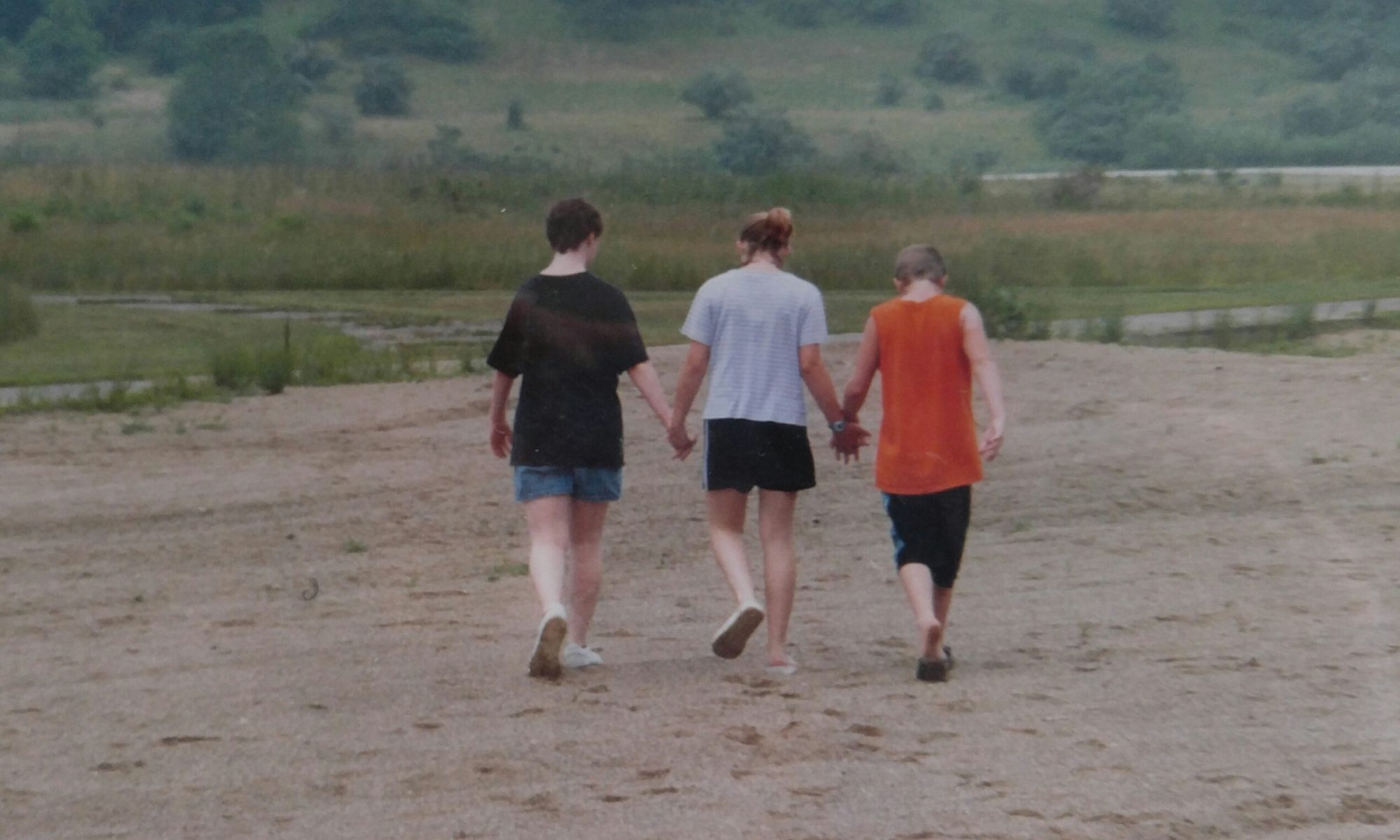
Most of the time, when someone learns Casey and Rob have autism, this is one of the first questions I am asked and when I say, yes, they can talk, I am told how lucky I am. I’m not denying that I am extremely lucky, but…. talking and communicating are too vastly different things.
Right now, Rob is talking in his room. Long black train, Grandpa Bill, Christmas trees, and tomorrow’s Hopewell. Casey is laying on the couch giggling about Elmo learning his ABC’s. Yes, Casey and Rob can talk – for hours, loudly, but, they have a difficult time communicating with me.
They can answer simple questions, most of the time. “What did you eat?” “What do you want to eat?” “What store do you want to go to?” “Do you want….?” Easy, short questions that have literal answers.
But, communicating, that’s another story. I have several examples of what I mean.
Next week is Rob’s birthday. I have asked him several times what he would like for his birthday. “Presents.” I asked what kind of presents. “Presents.” He doesn’t understand that I’m asking what he wants inside the wrapping paper, even when I change the way I word my question.
Friday, when I dropped them off at Hopewell, Casey couldn’t get her door open. She was in the backseat and the child lock option was on. Rob flipped the switch and got out. She couldn’t tell me she needed help and since I was watching to be sure he walked straight around the car to the sidewalk, I had started pulling away before I noticed she was still in the car. (Mother of the Year minute, right there! 🙂 ) She simply didn’t know she could say “stop!” or “help!” Other times, she can ask for help – but it’s not a consistent habit.
Their iPads updated one night. Casey asked for help the next day. Since the iPads rarely update at the same time, I didn’t think to check his. Instead of coming to me, he just laid it on his bed and found other ways to occupy himself. (He doesn’t usually spend as much time on the iPad as she does – he has several other things he likes to do.) But, still – he didn’t know how to ask for help, even though, most of the time, he can. His headphones stopped working and again, instead of telling me, he found an older, small pair and used them.
A few years ago, we drove to a place about an hour from home to look at Christmas lights. On the way home, he started saying his anxiety phrase – loudly. Mandy and Cory were with us and even they couldn’t calm him down. When we got home, he ran to the bathroom. Since we were in the car, he didn’t know he could still say he needed to use the bathroom and we would find a place to stop.
It’s little things like these that show how much their communication skills are affected by their autism. Yes, they talk – most days until it’s just a long, loud blur in my ears. But, they don’t really communicate with me. I can’t ask them what they did during the day. I can’t ask what their favorite color is or what movie is their favorite. I can’t know for sure what gifts Rob would like. I can’t know for sure when they are feeling sad or sick or tired. My life is a series of best guesses. Most of the time, yes, I get it right. (After all, I’ve lived with them for 33 and almost 29 years! 🙂 ) But, I would so love to have a real conversation.
What do they think about having a nephew in December? Where would they like to visit? Does anyone scare them? Or bother them when they aren’t with me? (that’s a huge fear – it can take weeks for Casey to say anything and it’s like pulling teeth to get info from her. Rob won’t say anything at all.)
So, yes, I am very grateful that Casey and Rob can talk. I love that I can get some answers from them. I am one of the lucky parents and I thank God for that every day. But, please remember that the ability to talk does not mean someone can communicate their needs, wants and fears. That takes patience and years of being around someone to understand. Learn to read your child’s eyes. The eyes truly are the windows to the soul – you will see how much they love you in their eyes, when you learn to look instead of listen.








